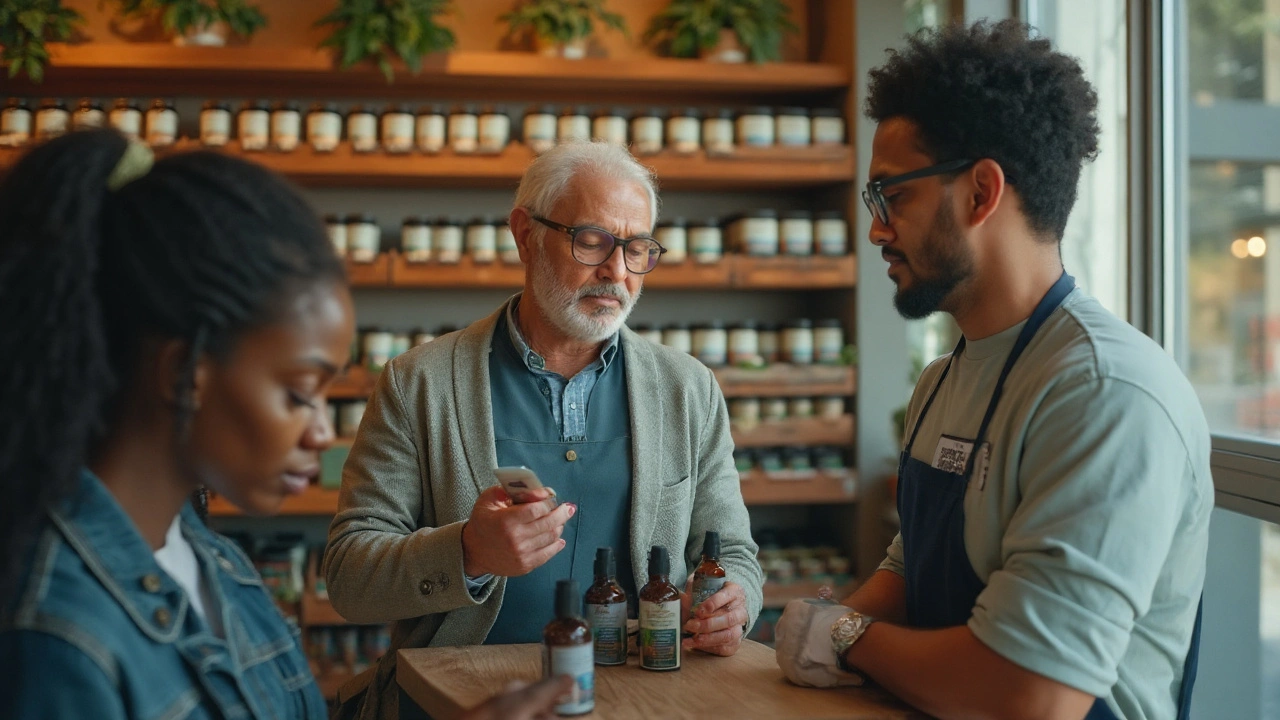CBD Benefits: What Works, How to Use, and What to Watch For
Ever wonder why CBD is everywhere from coffee shops to gym bags? People love it because it can help with everyday aches, restless nights, and a jittery mind—without the high you get from THC. Below we break down the most talked‑about benefits, share practical ways to take it, and point out the safety basics.
Top Health Benefits of CBD
Pain relief: Studies show CBD can calm inflammation and ease chronic joint pain. If you’ve tried ibuprofen and still feel sore, a few drops of full‑spectrum oil under the tongue may provide a soothing effect within an hour.
Better sleep: Many users say CBD helps them fall asleep faster and stay asleep longer. The trick is to start with a low dose (5‑10 mg) 30 minutes before bed and adjust gradually. Too much can actually keep you awake.
Anxiety reduction: A 2019 trial found a single 300 mg dose reduced anxiety during public speaking. For daily stress, a 10‑20 mg dose taken in the morning can keep nerves in check without feeling sedated.
Inflammation control: CBD interacts with the body’s endocannabinoid system, which regulates immune responses. Athletes often use a topical CBD cream on sore muscles to cut swelling after a workout.
Skin health: Because of its anti‑inflammatory properties, CBD can calm acne and eczema. A lightweight serum applied twice a day can reduce redness in a week or two.
Safe Use and Dosage Tips
Start low and go slow. A common rule is 1–5 mg of CBD per 10 lb of body weight. If you’re 150 lb, that’s about 15‑20 mg as a starting point. Track how you feel and adjust in 5‑mg increments.
Choose the right product form. Oils and tinctures are fast‑acting; capsules give a steady dose; topicals stay local; edibles release slowly and can last longer. Pick what fits your routine.
Watch for interactions. CBD can affect how the liver processes certain meds, especially blood thinners and anti‑seizure drugs. If you’re on prescription meds, ask a pharmacist before adding CBD.
Pay attention to quality. Look for third‑party lab results that show the exact CBD amount and confirm there’s less than 0.3% THC. Badly made products may contain contaminants or far less CBD than advertised.
Remember that CBD isn’t a cure‑all. It can ease symptoms, but it won’t replace professional medical treatment for serious conditions. Use it as a supplement, not a substitute.
Bottom line: CBD can be a handy tool for pain, sleep, anxiety, and skin issues when you choose a reputable product, start with a modest dose, and watch how your body reacts. Give it a try, stay mindful of dosage, and you’ll see if the buzz around CBD lives up to the hype for you.
Marijuana Dietary Supplements: Real Health Benefits, CBD vs THC, Dosing & Safety (2025 Guide)
Curious if marijuana supplements are worth it? See what evidence says about CBD/THC benefits, safe dosing, side effects, legality, and how to pick quality products.
